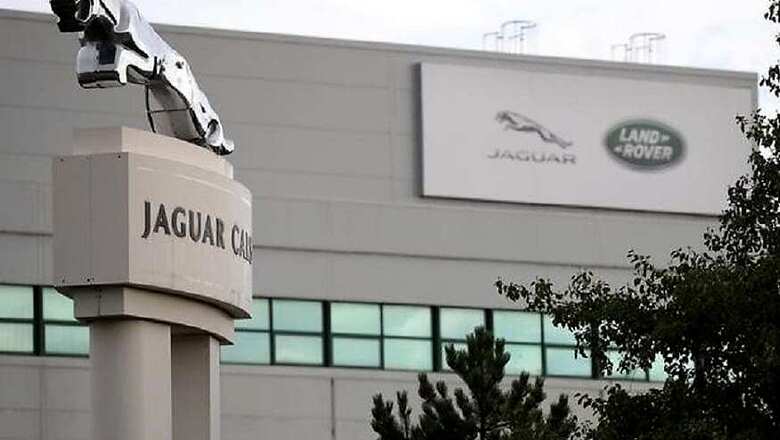
views
Tata Motors-owned Jaguar Land Rover on Monday confirmed a cut in its production schedule at the Castle Bromwich plant manufacturing Jaguar cars in the West Midlands region of England due to "continuing headwinds" impacting the British car industry.
The change in schedule, described as "standard business practice" by the Tata Group company, will see nearly 1,000 workers at the plant shifting from a five-day work schedule to a three-day one until Christmas this year.
"As is standard business practice, Jaguar Land Rover regularly reviews its production schedules to ensure market demand is balanced globally," JLR said in a statement.
"In light of the continuing headwinds impacting the car industry, we are making some temporary adjustments to our production schedules at Castle Bromwich," it noted.
The company, however, reiterated that it continues to "over-proportinally invest" in new products and technologies, and is committed to its UK plants, in which it has invested more than 4 billion pounds since 2010 to "future-proof manufacturing technologies to deliver new models".
While the company did not confirm the exact numbers to be affected by the change in production schedule, an estimated 1,000 of the 2,000 workers at the Castle Bromwich plant are expected to be moved to a three-day week.
Jack Dromey, the local Labour MP for Erdington, blamed "Brexit chaos and the mishandling by ministers of the transition from diesel" for the move.
"Brexit now threatens the jewel in the crown of British manufacturing excellence. Ministers must get it right or the future is bleak," he said in a statement on Twitter.
The "headwinds" blamed by the company are quite clearly a reference to the impact of ongoing Brexit negotiations and the deal Britain is able to strike with the European Union (EU), something JLR CEO Ralf Speth has repeatedly intervened over in recent weeks. In his most recent comments earlier this month, Speth had warned that a so-called "no-deal" Brexit and lack of clarity over Britain's post-Brexit plans threatens the UK-based luxury carmaker's entire operational set up in the country.
"Just one part missing could mean stopping production at a cost of 60 million pounds a day. That is a huge risk. We depend on free, frictionless, seamless logistics," he had said.
Speth had also reiterated a previous warning over a hard Brexit scenario hitting Tata Motors-owned JLR's annual profits by over 1.2 billion pounds, which might even force its exit from the UK.
"At the end of the day we are British. We are an absolutely British company and we want to stay here," he said.
The news of the latest production cuts this week comes on the day that prominent pro-Brexit Conservative party MP Bernard Jenkin accused Speth of scaremongering with his predictions.
"I'm afraid I think he's making it up. We've had figures made up all the time by the scaremongers in this debate and I'm afraid nobody believes them," Jenkin said.
Labour MP Dromey countered that Monday's announcement by JLR confirms that all "fears are justified".
"A hard Brexit or no-deal will be catastrophic for Britain's automotive industry," Dromey warned.
At the beginning of the year, JLR had said it would cut production at its plant in Halewood, Merseyside, where it builds three of its Range Rover models. In April, it said that it would not renew the contracts for 1,000 temporary workers at its operation at Solihull in the West Midlands.
In June, JLR said it would shift production of its Land Rover Discovery SUV to a new plant in Slovakia, potentially leading to some job losses in the UK.
Industry body, the Society of Motor Manufacturers & Traders (SMMT) has issued repeated warnings over the impact Brexit is having on the UK's automotive sector - which registered a decline in 2017.
"To ensure future growth, we need political and economic clarity at home, and the continuation of beneficial trading arrangements with the EU and other key markets," SMMT chief executive Mike Hawes said.
The British car industry is particularly concerned about Brexit because of its heavy reliance on the European supply chain and the EU's status as Britain's biggest car export market.



















Comments
0 comment